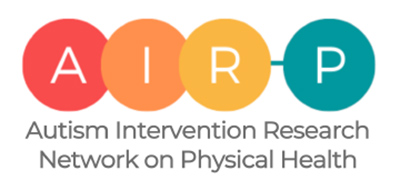AIR-P Presents: How can we use an understanding of the neurodiversity movement to develop socially valid supports for autistic people?
Tuesday, February 15, 2022
4:00pm - 5:00pm
Location: Zoom
Webinar Description:
After introducing common aims and controversies surrounding the neurodiversity movement, we will empirically examine how support for the neurodiversity movement intersects with perspectives about socially valid “intervention” goals among autistic and non-autistic stakeholders. For example, supporting the neurodiversity movement is associated with rejecting normalization-oriented “interventions” while seeking societal reform and supportive environments. Next, we will discuss why it is so essential to develop socially valid supports for autistic people by exploring new research examining factors that impact the mental health of autistic young people, such as the age at which they learn they are autistic and social satisfaction. We will highlight the importance of taking an intersectional approach to developing supports for neurodivergent people, with a particular focus on the need for neurodivergent people to see their diverse identities understood and represented among helping professionals. Lastly, we will provide examples of ways that autistic and non-autistic people can collaborate to help others appreciate autism and develop more accessible practices.
Presenters:

Patrick Dwyer
Patrick is an autistic PhD candidate in Susan Rivera’s lab at UC Davis. His main research interest is using various methods (including electrophysiology, questionnaires, psychophysics, and eye-tracking) to explore sensory processing, attention, and hyper-focus in autism. Patrick also has strong side-interests in topics such as the neurodiversity movement and social validity of interventions. Patrick is a co-founder and co-chair of the Autistic Researchers Committee at the International Society for Autism Research (INSAR) and a member of the AIR-P’s own Autistic Researcher Review Board. At a local level, Patrick facilitates peer-support communities for neurodivergent students at UC Davis. He maintains a blog, autisticscholar.com.

Erin McKenney
Erin is a Clinical Psychology doctoral student at Rowan University and a member of Dr. Kaite Gotham’s Social, Emotional, and Affective Health Lab (SEAHL). Her research focuses on the emotional wellbeing of autistic adults, including identifying and intervening on predictors of depression and anxiety. She's passionate about learning from the neurodiversity movement and disability justice initiatives and applying this knowledge to research and teaching.

Bella Kofner
Bella is an autistic graduate student at the College of Staten Island (CSI) majoring in Special Education 7-12. She is one of the co-leaders in the structured group meetings that focuses on skills development in the Project REACH program. Her research has so far focused on various topics, such as learning one is autistic earlier is associated with better adult outcomes and the faculty and autism UD training.

Sergey Shevchuk-Hill
Sergey is an ADHD graduate student at the College of Staten Island (CSI) of the City University of New York (CUNY) pursuing a master’s in Clinical Mental Health Counseling. Their research has so far focused on the career interests as well as the writing of autistic students. They are passionate about neurodiversity and intersectionality.

Kristen Gillespie-Lynch
Dr. Kristen Gillespie-Lynch is currently an Associate Professor of Psychology at the College of Staten Island and the Graduate Center of The City University of New York. She uses a multi-method participatory approach to help autistic adolescents and adults transition successfully into college and careers and to improve community understanding of autism internationally.
Please Note:
- CART captioning was be provided. For additional disability accommodations please email Anna Costalas at [email protected] two weeks prior to the event with name of event and accommodation preference in your response.
- There was no cost for this webinar.
- CEUs were not offered for this webinar.
- This webinar was held on the Zoom Platform. You can test your connection with Zoom before joining the meeting here.
- This webinar is now archived and available on the AUCD Webinar Library.

Download:
Neurodiversity_Feb2022AIR-PTalkpptx.pdf [download]